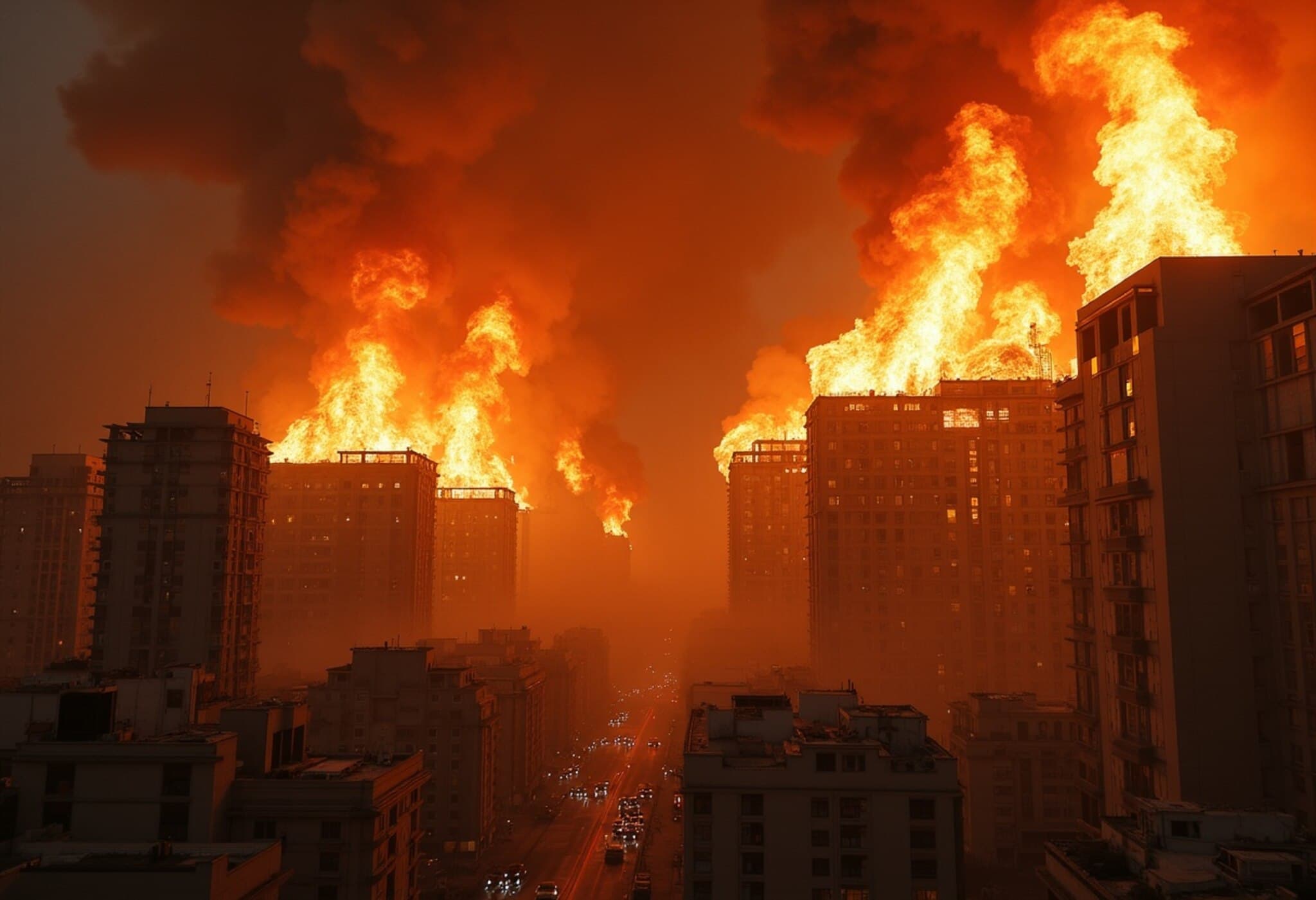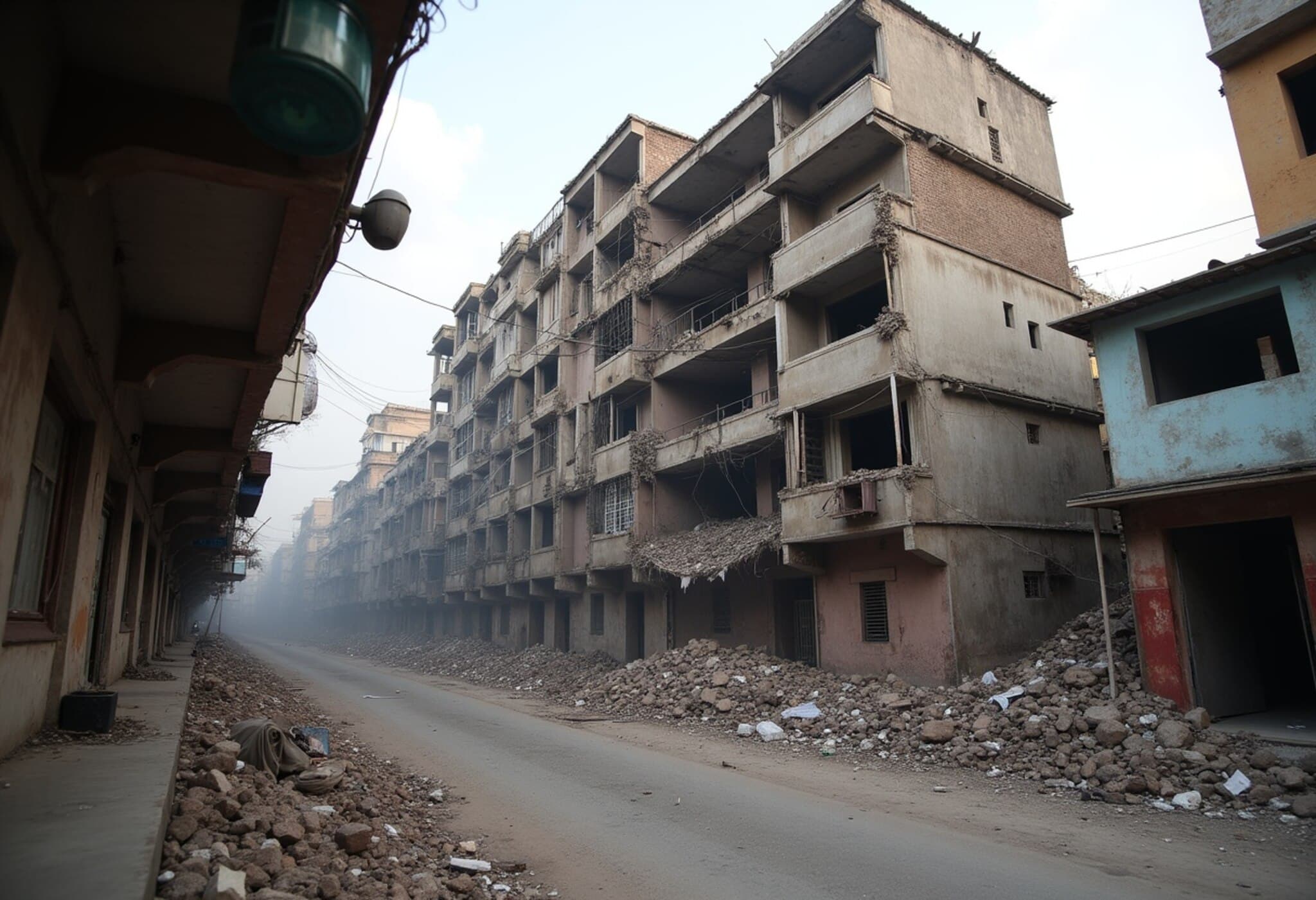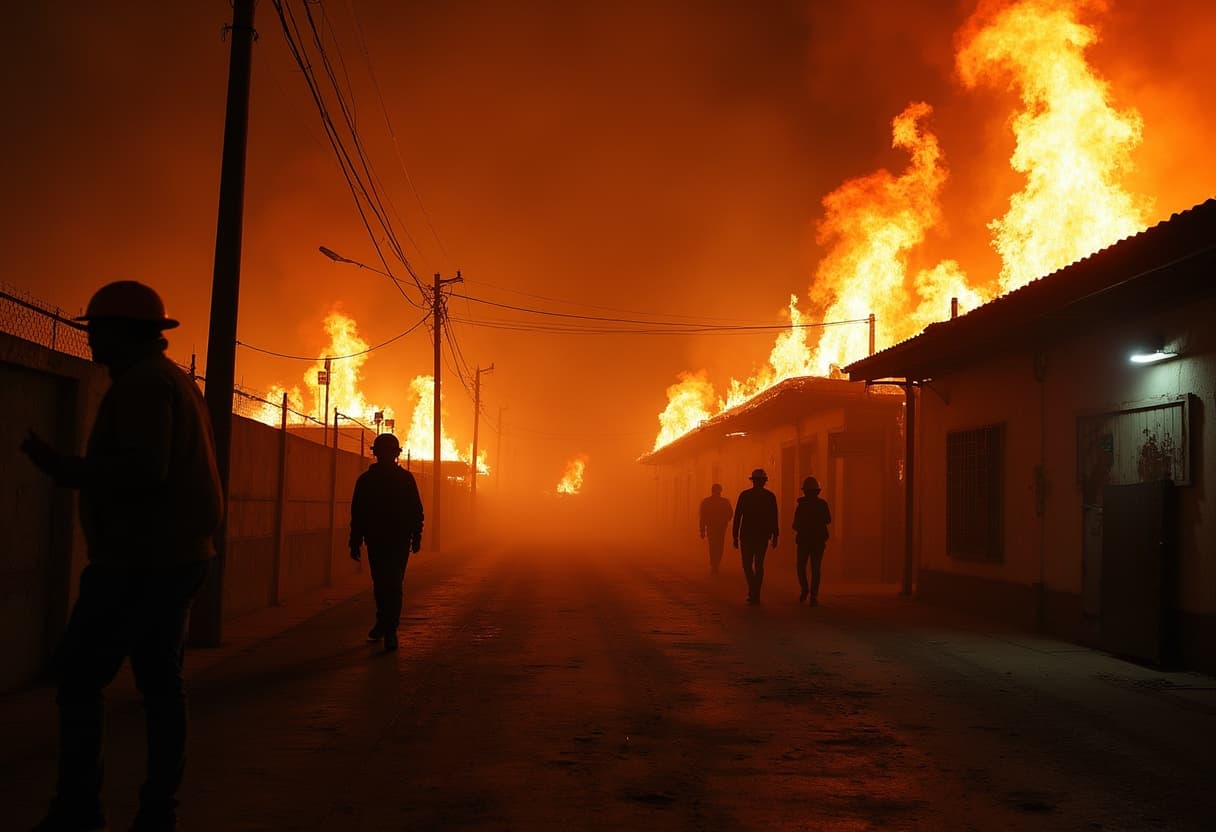Deadly Blaze Ravages Telecom Egypt Building, Leaving Tragedy and Disruption in Its Wake
On July 7, 2025, a devastating fire engulfed the iconic 10-story Telecom Egypt headquarters located in downtown Cairo. The inferno, which erupted in the telecom operators’ hall, quickly escalated, spreading to multiple floors and raging for several hours. Sadly, the disaster claimed the lives of four employees and injured over two dozen others, spotlighting critical concerns about workplace safety and emergency preparedness.
Fire Details and Human Toll
According to official statements, the fire started in one of the main operational halls housing telecom operators. The rapid spread was intensified by the building’s dense infrastructure, complicating containment efforts. The workers’ union confirmed that all four fatalities were employees trapped inside the burning facility.
- 27 individuals were hospitalized by Tuesday afternoon, with some victims subsequently discharged after treatment.
- Several others suffered from smoke inhalation but were treated on-site, emphasizing the fire’s severity and swift impact.
Ongoing Emergency Response
Smoke continued to billow from the upper floors well into Tuesday morning, even as firefighters worked tirelessly to douse remaining hotspots. Visual reports from the scene depict the building’s top floors severely charred, underscoring the blaze’s intensity.
Authorities managed to contain the flames, yet the event has raised urgent questions about Cairo’s preparedness for large-scale urban fires, especially in vital communication hubs.
Widespread Service Disruptions
The fire’s ripple effect was felt across Egypt’s communication and transportation networks:
- Internet and mobile connectivity plunged to 62% of normal levels, according to NetBlocks, disrupting daily digital activities nationwide.
- Air traffic temporarily faced interruptions; however, the civil aviation ministry reported that all grounded flights had departed by early Tuesday, minimizing prolonged chaos.
- The Egyptian Stock Exchange suspended trading for the day, citing system inefficiencies caused by the disruptions.
Government Response and Recovery Efforts
Communications Minister Amr Talaat assured the public that restoration efforts were underway, with services gradually transitioning to alternative switchboards to stabilize operations within 24 hours. This quick mitigation reflects the critical role telecom infrastructure plays in national resilience and economic stability.
Expert Insights and Regional Context
Fires in essential infrastructure raise multifaceted challenges. Beyond the immediate human tragedy, the interruption to communication networks can have cascading effects on emergency services, financial markets, and public safety. In Egypt—a country striving for technological advancement and regional connectivity—such incidents highlight vulnerabilities in the aging infrastructure.
Experts emphasize the need for rigorous fire safety regulations, regular risk assessments, and investment in modern safety technologies. Furthermore, emergency evacuation protocols and employee training in high-risk environments like telecom centers are vital to prevent loss of life and minimize injuries.
With Cairo’s dense urban environment and its importance as the economic heart of Egypt, enhancing disaster preparedness at critical facilities must be a top priority. Policymakers and industry leaders should reflect on this tragedy to bolster safety standards nationwide.
Looking Ahead
As investigations continue into the fire’s cause, attention will also focus on how swiftly Telecom Egypt can restore full service—and the broader lessons to be learned about protecting vital national infrastructure. The incident serves as a sobering reminder of the human costs behind the seamless connectivity millions rely on every day.
Summary & Key Takeaways
- A severe fire at Telecom Egypt’s Cairo headquarters caused four fatalities and injured over 25 individuals.
- The blaze disrupted internet, mobile services, air travel, and financial markets, illustrating infrastructure interdependency.
- Government officials promise restoration within 24 hours, shifting services to backup switchboards.
- Experts urge strengthened fire safety, emergency preparedness, and infrastructure modernization to prevent future tragedies.
Editor’s Note
This calamity at Telecom Egypt not only brings grief for lives lost but spotlights vulnerabilities in critical infrastructure in rapidly modernizing cities. Readers are encouraged to consider: How can nations balance technological growth with robust safety measures? What role does government oversight play in protecting employees and citizens alike? As Egypt rebuilds and recovers, this incident should fuel timely policy debates and practical improvements to emergency readiness across sectors.












